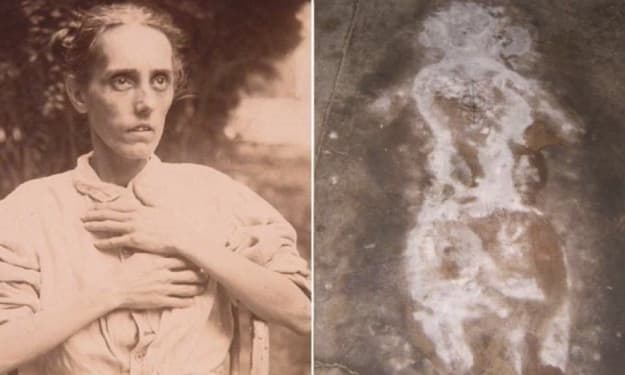The Many Facets of Love: A Journey Through Emotion and Connection
A Journey
Love is one of the most profound and multifaceted human experiences, touching every aspect of our lives and influencing our actions, thoughts, and well-being. It is a universal theme explored through literature, music, art, and philosophy, transcending cultural and geographical boundaries. This article delves into the various dimensions of love, from its biological roots to its emotional, psychological, and societal impacts.
The Biology of Love
Love begins at the biological level, where it is deeply rooted in our evolutionary history. The feelings associated with love are triggered by a complex interplay of hormones and neurotransmitters. Oxytocin, often called the "love hormone," plays a significant role in bonding and attachment, promoting feelings of trust and intimacy. Dopamine, the "pleasure chemical," is associated with the exhilaration and reward we feel in romantic love. Endorphins and serotonin also contribute to the overall sense of happiness and well-being experienced when we are in love.
Romantic Love: Passion and Commitment
Romantic love is perhaps the most celebrated form of love, often depicted in movies, songs, and literature. It encompasses passion, intimacy, and commitment, creating a powerful emotional connection between two individuals. Romantic love is characterized by an intense desire for union with another person, accompanied by feelings of excitement, longing, and joy.
This form of love often follows a trajectory that begins with infatuation or "puppy love," where intense attraction and idealization of the partner occur. Over time, this can deepen into mature love, where passion is tempered by a deeper sense of connection and commitment. While the initial intensity may wane, the bond often grows stronger and more resilient, fostering long-term partnerships.
Familial Love: Bonds that Shape Us
Familial love, or the love between family members, is fundamental to our development and well-being. It is the first form of love we experience, beginning with the bond between parent and child. This form of love provides a sense of security, belonging, and identity. It is characterized by unconditional support, sacrifice, and an enduring connection that often withstands the test of time and adversity.
The love within families forms the foundation of our social and emotional development. It teaches us empathy, compassion, and the ability to form healthy relationships outside the family unit. The bonds of familial love are not limited to biological connections but can extend to chosen family, such as close friends and mentors who play significant roles in our lives.
Platonic Love: Friendship and Beyond
Platonic love is the deep affection and connection we feel for friends, mentors, and others with whom we share a non-romantic bond. Named after the philosopher Plato, who explored the concept in his works, platonic love is characterized by mutual respect, admiration, and a sense of shared values and interests.
Friendships, a common form of platonic love, provide emotional support, companionship, and a sense of belonging. They contribute to our mental and emotional well-being, helping us navigate life's challenges and celebrate its joys. Unlike romantic love, platonic love is not driven by physical attraction but by a deep, enduring connection that can be just as fulfilling and meaningful.
Self-Love: The Foundation of All Love
Self-love is the recognition of one's worth and the cultivation of a positive relationship with oneself. It involves self-respect, self-care, and self-compassion. Self-love is not about narcissism or selfishness but about acknowledging and nurturing one's own needs and well-being.
A healthy sense of self-love is essential for forming and maintaining other types of love. It provides the foundation for self-respect and boundaries, enabling us to give and receive love more authentically and sustainably. Without self-love, we may struggle with self-doubt, insecurity, and the inability to fully connect with others.
Love in Society: Building Connections
Love is a powerful force that shapes societies and cultures. It fosters social cohesion, cooperation, and the building of communities. Acts of love and kindness create ripple effects, promoting empathy and understanding across different social groups.
In a broader sense, love can inspire social movements and drive change. The desire for a more just and compassionate world often stems from a love for humanity and a commitment to the well-being of others. Love, in this context, becomes a catalyst for collective action and the pursuit of common good.
The Challenges of Love
While love is a source of immense joy and fulfillment, it also comes with its challenges. The complexities of human emotions and relationships can lead to misunderstandings, conflicts, and heartbreak. Navigating these challenges requires communication, empathy, and a willingness to grow and adapt.
Love also demands vulnerability, which can be daunting. Opening oneself to love means risking rejection and disappointment. However, the rewards of genuine connection and the growth that comes from overcoming obstacles often outweigh the potential pain.
Conclusion
Love is a dynamic and multifaceted emotion that enriches our lives in countless ways. It is a fundamental aspect of the human experience, influencing our relationships, our sense of self, and our connection to the world around us. Whether it manifests as romantic passion, familial bonds, platonic friendship, or self-compassion, love has the power to transform and elevate our lives. Embracing the many facets of love allows us to cultivate deeper connections, foster greater understanding, and ultimately, lead more fulfilling lives.
About the Creator
Enjoyed the story? Support the Creator.
Subscribe for free to receive all their stories in your feed. You could also pledge your support or give them a one-off tip, letting them know you appreciate their work.






Comments
There are no comments for this story
Be the first to respond and start the conversation.